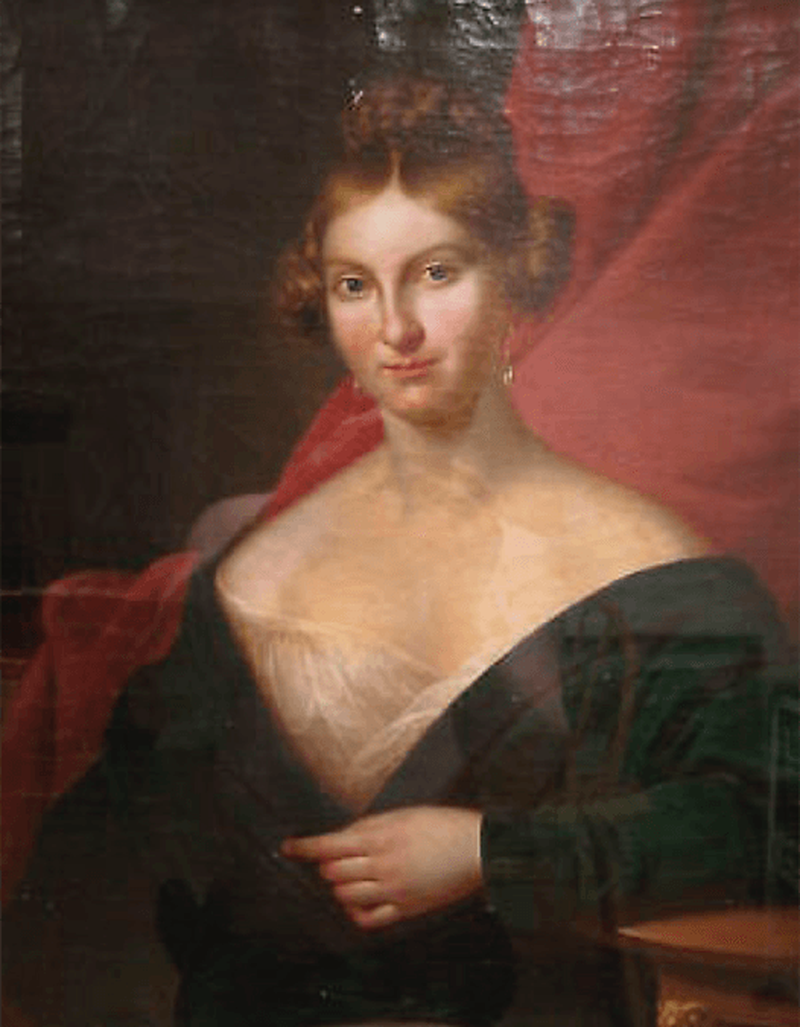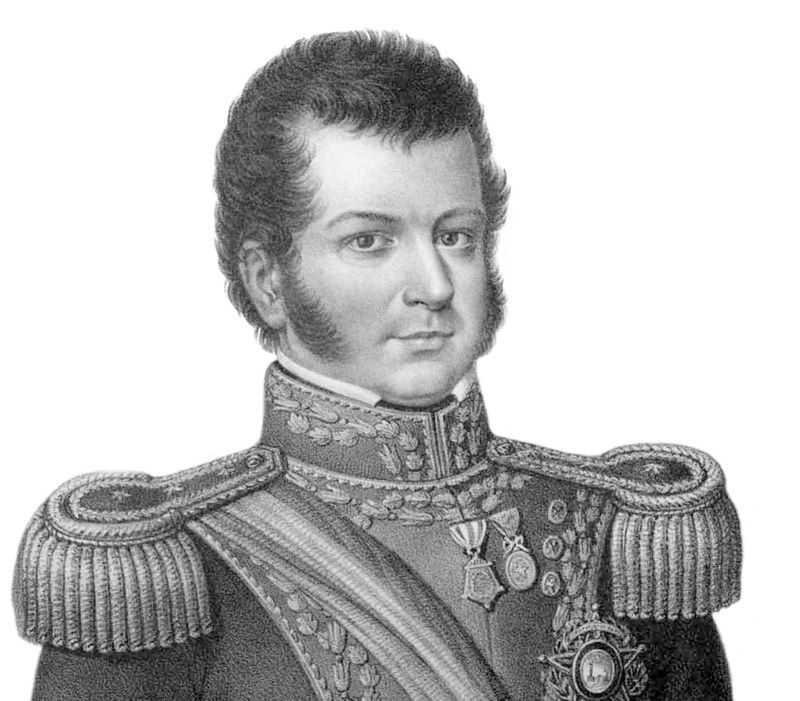The country’s hero had an affair with Rosario Puga, a young aristocrat from Concepción. Although she was de facto separated from her first husband, she accompanied Bernardo when he was supreme director and bore him her only son, Pedro Demetrio. But tensions and political differences led to the collapse of the Chilanejo government. This is the story of a palace love, in a period of presidential ruptures.
“Few people see what we are, but everyone sees what we look like” said Machiavelli. A maxim applicable to power at any time in history. You should have taken that into account Bernardo O’Higgins , Supreme Director and hero of Chile’s independence when he dealt with some thorny issues in his private life. Above all, his relationship with the young Creole Rosario Puga. A story of love and breakup in the middle of Chilanejo’s mandate.
O’Higgins’ inner circle consisted of women . Throughout his life, despite moments of distance, he had consideration for his mother, Isabelle Riquelme , who even accompanied him into exile. A closeness he also maintained with his sister Rosa, the result of a later marriage to Doña Isabel, who could also bear the surname O’Higgins and was one of his most reliable people.

Although taciturn and calm, It is known that O’Higgins had a romantic relationship during his student years in the United Kingdom. (even though he did not yet have his father’s last name). The young woman in question was called Charlotte Eels, daughter of the owner of the pension where the future Chilean patriot resided, in Richmond. But the feelings towards the young woman worried the young Chilean. He moved away from the residence, but kept the memory of it. In fact, it is said that even during his days of exile in Peru, he kept in his possession a portrait of the girl.
A turbulent history
O’Higgins’ great love was the young María del Rosario Puga y Vidaurre . Born in Concepción, as it is called, around 1796, to a distinguished local family who owned land. His father was Juan de Dios Puga, who over the years became a general in the Patriot Army.
It is not known precisely when the first meeting took place. It is likely that this occurred during the first half of 1817, when O’Higgins arrived in the Biobío capital as the nation’s new supreme director. She was 21 years old and the hero was 39 years old.

As was the custom at that time, young Puga had been given in marriage. The husband was José María Soto Aguilar, a suitor who managed to win over her family. But the attraction was stronger and little by little interest arose between Bernardo and Rosario, already separated in fact.
The relationship was formalized around 1818. “The romance began in Concepción, during the siege of Talcahuano” explains to Worship the journalist and historical researcher, Alfredo Sepúlveda, author of Bernarda biography of the hero.
Contravene social norms, Rosario accompanied Bernardo to Santiago that same year. To show that he was serious, Puga formally petitioned religious and civil authorities for his divorce from Soto Aguilar. To do this, she invoked the subterfuge of abuse and cruelty on the part of her lawful husband. The separation trial was the talk of rallies and rallies in the capital. How was it possible for the Supreme Director to live with an separated young woman, it was said.
In Santiago, Rosario moved into an elegant residence that had belonged to the Marquises de la Pica (Irarrázaval and Bravo de Sarabia family), whose royalist affiliation led them to leave the city after the patriots’ victory in the war. “Rosario’s house was located in Esmeralda and Miraflores and O’Higgins lived with her when they were together under his government” , underlines Alfredo Sepúlveda. He took refuge there when he arrived injured after the disaster of Cancha Rayada (March 1818).

Some time later, Rosario moved to a house in Santo Domingo 623, which was allegedly paid for in part by O’Higgins himself, as detailed in the text. Five women in O’Higgins’ life, by Gustavo Opazo Maturana. There, she is said to have given birth to Pedro Demetrio in June 1818. The child was baptized the same day by the army chaplain, Domingo Jaraquemada. “I put oil and cream on Pedro Demetrio, son of unknown parents.” , he noted in his logbook. As happened to him himself, O’Higgins did not want to recognize his firstborn.
This isn’t the only case in which the relationship has hit O’Higgins. “There is a lawsuit that Rosario’s ex-husband filed against O’Higgins in which reference is made to her existence. -said Sepúlveda-. I dared to speculate when I wrote the book that this plunged O’Higgins into a depression, because it coincided with the rise to power of José Antonio Rodríguez, who virtually supplanted him in 1822-23, but It’s just speculation that “I wouldn’t do it if I wrote the book today.”
But questions of power gradually darkened the relationship. . It is said that Rosario, with a strong personality and renowned beauty, reproached Bernardo for not recognizing his son. In addition, he blamed him, like others, for the death of the Carrera brothers and Manuel Rodríguez Erdoíza, the legendary guerrilla.
In 1820, under the O’Higgins government, the rupture occurred. As if it were a story today, the custody dispute with Pedro Demetrio immediately arose, but it was left in the hands of Isabel Riquelme. When the hero had to abdicate and go into exile in Peru in 1823, he took his son with him. Rosario never saw him again.
The story had other twists and turns . Rosario married again in 1829, this time to José Antonio Pérez Cotapos, a colonel close to the Carreras, bitter rivals of O’Higgins. “Rosario left him (O’Higgins) for a careerist with whom she later started a family.” a, that is to say, it was also a political question,” explains Alfredo Sepúlveda.
For Sepúlveda, there are further readings on the romance of O’Higgins and Rosario Puga. “What is interesting about this episode is the softening of the so-called conservative norms of colonial society, probably because of the war or simply because they had far fewer cartridges than people today because everyone lived shorter lives.
Continue reading in Cult
Source: Latercera
I’m Rose Brown , a journalist and writer with over 10 years of experience in the news industry. I specialize in covering tennis-related news for Athletistic, a leading sports media website. My writing is highly regarded for its quick turnaround and accuracy, as well as my ability to tell compelling stories about the sport.


